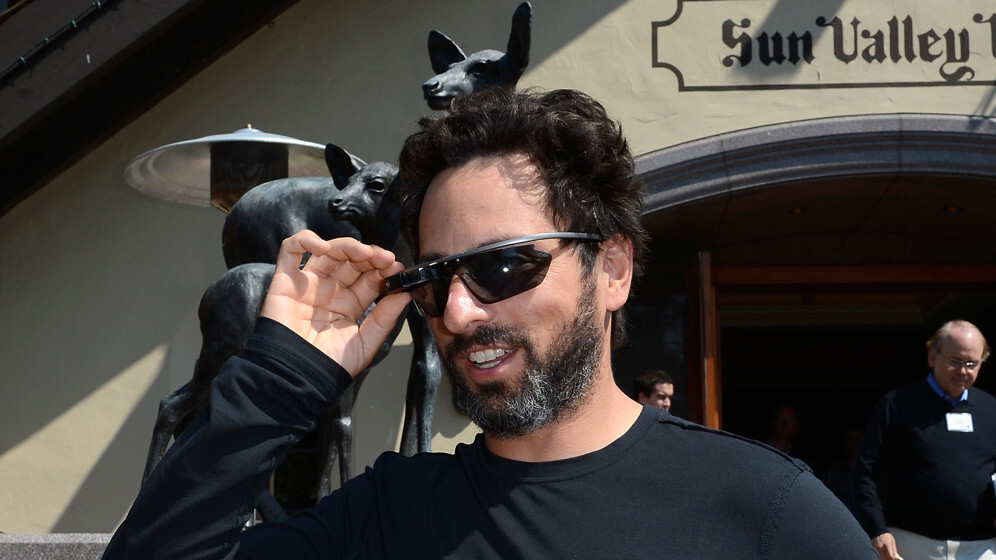
When lawmakers consider banning something before it’s even hit the market, it’s clear that it has the potential to be truly disruptive. However, a politician in West Virginia looking to ban the use of devices like Google Glass while driving is just the tip of an iceberg. Devices like Glass could well change society immensely over the next next few years.
What devices are we talking about? Glass is the obvious flagship here, with its ability to snap and upload pictures and video live from a scene, not to mention its contextual alerts and the apps it can run but there’s the Memoto, too.
This wearable camera is due to launch in the next few weeks, it will snap a photograph every thirty seconds throughout the day, candidly capturing whatever the wearer is doing. While it’s nowhere near as advanced as Glass, it has a similar effect of introducing wearable, Internet-focused cameras into our daily lives, taking photos without the traditional cue of someone holding up and aiming a camera or smartphone to alert others nearby to the fact that an image was being captured.

You may or may not object to government and police-controlled CCTV cameras tracking what we do, but we’re about to enter a world where anyone could be tracking everything you do with cameras you may not be aware of. While it’s pretty obvious if someone is wearing Google Glass, the Memoto is far more subtle. Meanwhile other manufacturers like Samsung are said to be working on their own products along the same lines. If these products enter the mass market, it’s important we’re prepared for some of the issues they raise.
Fighting crime… and the perfect alibi?
I recently witnessed a crime near where I live. I reported it to the police and they made an arrest. However, I couldn’t give any solid details of what the people I saw looked like – I was a really bad eyewitness. If I’d have had something like the Memoto or Glass, I could have been able to record the event easily and subtly. When the police asked “How many people did you see? What were they wearing?”, I’d have had my own CCTV record to refer back to.
Going a step further, these devices could be the perfect alibi. I’ve often wondered if the police would accept my Google Latitude location record as legitimate proof of my location if I was accused of a crime I didn’t commit. Geotagged, timestamped point-of-view photos and video may be even better. Write a lifelogging app for Google Glass or use a Memoto and you suddenly have multimedia proof of where you’ve been.

Subpoenaed for the record of your life
Of course, it could go the other way. If you’re accused of being somewhere you weren’t, or if someone’s accusing you in court of being in a certain location at a certain time, maybe you have a record of it on your Google account or your Memoto account – maybe your fitness bracelet that you wore all day recorded your location without you even thinking about it? It’s easy to imagine this kind of data being subpoenaed in the search for evidence of where you were and what you were doing at a certain time.
Who controls the record of your life?
If we do want to use devices like Glass and Memoto to log our whole lives, the question about who owns and controls all that data becomes important. Using cloud-based technologies, your life history could be stored forever on some big technology company’s server. What happens if someone else buys that company – and all its data – later down the line? This isn’t just like your Facebook account with its record of your friends, chats, photos and the like – this is far more personal. Will you ever know who’s really looking at your life history – where you’ve been, what you’ve seen and what you’ve done?
There’s definite value in lifelogging via wearable technology, so we’re unlikely to reject it completely as a society. More likely is that we’ll see the same split between people who are happy to give their data over to third parties in exchange for an easy life (think users of Twitter, Google or Facebook for the social Web equivalent), and people who are committed to owning their own data and so adopt more open source technologies that they can tailor to their own needs – and, crucially, control their own data.
The evolution of lying
The first series of the excellent UK future-gazing drama series Black Mirror included an episode called ‘The Entire History of You’ (if you’re in the UK you can watch it legally on YouTube). It imagined a future in which everything everyone sees and hears is recorded via a body implant. Individuals can watch replays of any point in their lives, and even share those videos with others. It causes problems for the couple followed in the episode when evidence of infidelity, and even video of a full-on, marriage-ruining sexual encounter, is revealed.
This mashup of Google’s Glass promo with clips from the Black Mirror episode (by YouTube user Oriel2000) gives a flavor of the similarities between the real and fictional technologies.
While the technology emerging this year is obviously a long way from what Black Mirror imagined, we’re starting off on that road. Lying in the very near future is going to be a very different proposition. What may have previously been a simple lie about your whereabouts may involve careful preparation by deleting evidence or altering geotags, just in case someone decides to look into your claim.
Where will these cameras be banned?
It’s one thing you or your friends uploading pictures of you and sharing them with the world, but what about strangers? Would you act differently knowing that everything you do, every conversation you have, could be recorded by a camera you’re not aware of? We all talk differently when we’re off guard. Talk to me over a drink in a relaxed setting and I’ll probably be far more loose with what I say than in a formal meeting or in an email. Will I change that if I think that what I say could be being recorded. “Don’t tweet that” could well become “don’t Glass this.”
It’ll only take a few high-profile cases of photos or videos uploaded and presented out of context to make us all rethink how we approach our everyday lives. Beyond obvious places that ban all cameras (art galleries for example), it’s easy to imagine bars, and other places where people just want to relax, banning wearable cameras and smart glasses.
What else?
The impact on technology like Glass on society could be huge, and this is only a hint at the changes it could usher in. What other impact could we see? I’d love to read your ideas, so please leave a comment.
Now read: Google Glass and wearable tech: This is a game-changer, not a fad and From fare-dodgers to racial abuse, smartphones mean you must behave yourself in public.
Header image credit: Getty Images
Get the TNW newsletter
Get the most important tech news in your inbox each week.




